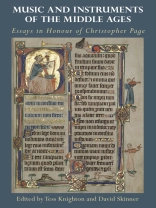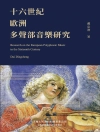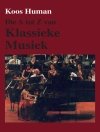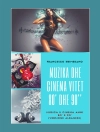Essays on important topics in early music.
Christopher Page is one of the most influential and distinguished scholars and performers of medieval music. His first book,
Voices and Instruments of the Middle Ages (1987), marked the beginning of what might be called the’Page turn’ in the study and performance of medieval music. His many subsequent publications, radio broadcasting (notably the series
Spirit of the Age) and performances and recordings with his ensemble Gothic Voices changed the perception of and thinking about music from before about 1400 and forged new ways of communicating its essence to scholars as well as its subtle beauty to wider audiences.
The essays presented here in his honour reflectthe broad range of subject-matter, from the earliest polyphony to the
conductus and motet of the thirteenth and fourteenth centuries, the troubadour and trouvère repertories, song and dance, church music, medieval music theory, improvisation techniques, historiography of medieval music, musical iconography, instrumental music, performance practice and performing, that has characterised Page’s major contribution to our knowledge of music of the Middle Ages.
TESS KNIGHTON is an ICREA Research Professor affiliated to the Institució Milà i Fontanals-CSIC in Barcelona and an Emeritus Fellow of Clare College, Cambridge; DAVID SKINNER is Fellow and Osborn Director of Music at Sidney Sussex College, Cambridge, and director of the early music ensemble Alamire.
Contributors: Elizabeth Aubrey, Anna Maria Busse Berger, John Caldwell, Alice V. Clark, Lisa Colton, Lawrence Earp, Mark Everist, David Fallows, Manuel Pedro Ferreira, Andrew Kirkman, Elizabeth Eva Leach, Marc Lewon, Jeremy Montagu, Keith Polk, Reinhard Strohm, Rob C. Wegman, Crawford Young
For any queries regarding the completion and/orreturn of the Tabula Gratulatoria form below, please contact Elizabeth Mc Donald ([email protected])
Содержание
Introduction — Tess Knighton and David Skinner
The Progeny of Bernart de Ventadorn’s
Can vei la lauzeta mover — Elizabeth Aubrey
Medieval Iberian Song in its Mediterranean Context: From Andalusian
muwashshahat to the
Cantigas de Santa Maria — Manuel Pedro Ferreira
The estampies of Douce 308 — Elizabeth Eva Leach
Anonymous IV and the
Antiqui — Rob C. Wegman
The Development of the Latin Liturgical Psalter in England — John Caldwell
Forgotten Levers of Harmony: Where Are the Grammarians’
Claviculi? — Crawford Young
The Variable-Voice Conductus — Mark Everist
Making Sense of
Omnis / Habenti: An Ars Nova Motet in England — Lisa Colton
Super omnes speciosa: Machaut Reading Vitry — Alice V. Clark
‘The spirit moves me to speak of forms changed into new bodies’: Anton Webern, Philippe de Vitry, and the Reception of the Ars Nova Motet — Lawrence Earp
La belle se siet: Where Dufay and Josquin Meet — David Fallows
In Search of Medieval Music in Non-Western Countries — Anna Maria Busse Berger
Where Did Our Musical Instruments Come From? — Jeremy Montagu
Instrumentalists and Changing Performance Contexts, c. 1500 — Keith Polk
Non-mensural Polyphony: Performing Plainsong — Reinhard Strohm
‘Übersingen’ and ‘Quintieren’: Non-Mensural Polyphony in Secular Repertories: Oswald von Wolkenstein and the Monk of Salzburg — Marc Lewon
From Page to Sound: Performing the Masses of Walter Frye — Andrew Kirkman
Об авторе
TESS KNIGHTON is an ICREA Research Professor affiliated to the Institució Milà i Fontanals-CSIC in Barcelona and an Emeritus Fellow of Clare College, Cambridge.












